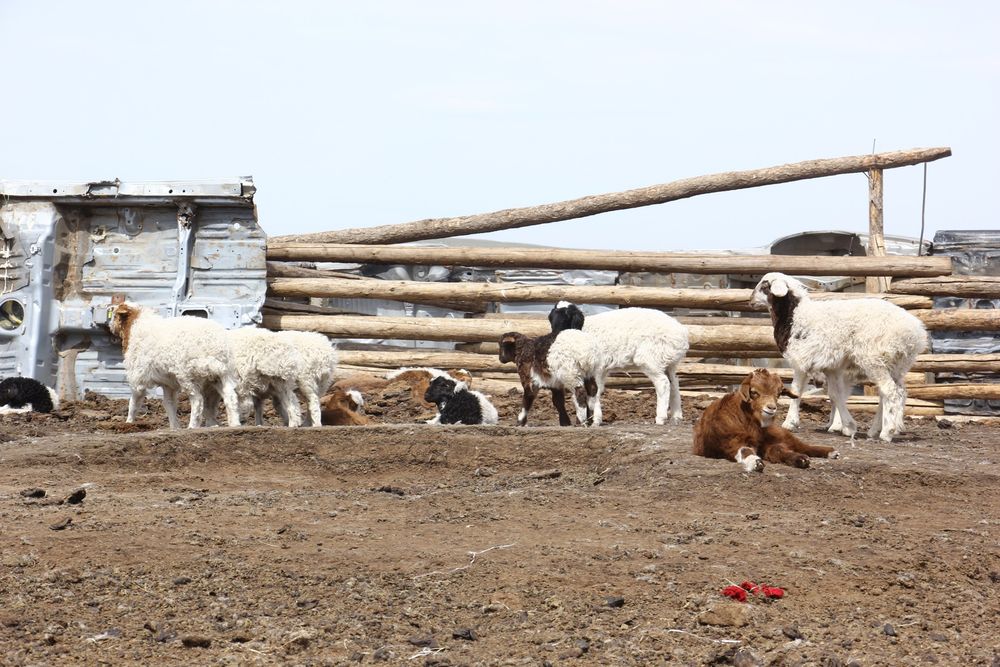By April 14th, the dzud impact was staggering - 10.2% of Mongolia's livestock perished, representing a loss of 6,618,588 animals and nearly 1.9 trillion Mongolian tugriks. Despite some predictability, the dzud was overly destructive. The government disseminates early warnings through various channels by November, utilizing dzud risk maps. Herders also prepared by buying extra animal food. However, recent dzuds have been particularly harsh. The timing, coupled with limited resources, weakens livestock before winter and even worse, it causes immense damage for the herders.
At World Vision International Mongolia, we were dedicated to assisting herder households and their children during the dzud disaster. In response to this crisis, we implemented following projects: the Dzud Emergency Assistance project funded by the Swiss Agency for Development and Cooperation, the Anticipation of Dzud project funded by Start Network, and the Mongolia Dzud Emergency Response phase 2 project funded by USAID-BHA. These projects targeted the provinces most severely affected by dzud, where assessments indicated extremely high risks and animal mortality rates.
The projects have been crucial in addressing these urgent needs of herder households. Through these projects, we distributed essential aid such as food assistance, hygiene and dignity kits, hay and fodder, and multi-purpose cash distribution to target households. Timely support through each of the projects is vital, as without it, vulnerable herders would face immense challenges overcoming these circumstances.
3344 children were assisted during the dzud emergency project funded by the Swiss Agency for Development and Cooperation
World Vision Mongolia, in partnership with the Swiss Agency for Development and Cooperation, launched the "Dzud Emergency Assistance in Khentii and Dornod Provinces" project. This initiative aims to support vulnerable herder households affected by dzud by providing essential food assistance, livestock hay, fodder/bran, and hygiene kits from March 15th to May 31st.
To safeguard main income source of vulnerable herder families, World Vision International Mongolia (WVIM) engaged diverse stakeholders and collaborating with communities during project execution at grassroot level.
With Match funding from WVIM and the Swiss Agency for Development and Cooperation, the project benefited 1,425 households including 3,344 children across 24 soums. The interventions were tailored based on updates from the State Emergency Commission of Mongolia and involved local suppliers and stakeholders.
Key Highlights:
- Food parcels, hygiene kits, and livestock fodder were provided.
- High beneficiary satisfaction and valuable feedback received.
- Lessons learned for future supply chain management in humanitarian operations.
This project exemplifies the importance of collaboration and timely intervention to strengthen agricultural livelihoods and support vulnerable populations.
A herder child shares his story of overcoming the dzud natural disaster
11-year-old son of a herder household who received support through the project shares his experiences during the dzud.
"My name is Munkh-Otgon. I'm in fifth grade and love sports and math. During winter break, I helped my parents around the ger by keeping the fire going and looking after my 4-year-old sibling while my parents tended to the animals. The severe weather made things worse when school started again, with heavy snow blocking roads and snowstorms causing me to miss class. The dzud was brutal; many animals starved and died, including my little goat, which was heartbreaking. The Swiss Agency for Development and Cooperation provided us with fodder and animal food, which was a lifeline for my family and the community. I can't wait for summer to play with my friends and the animals again. I dream of becoming a skilled herder like my parents."
Timely assistance in reducing livestock mortality during the harsh winter
With support from USAID-BHA, we provided livestock fodder to 2,000 herder households or 8,664 people in Bayan-Ulgii, Uvs, Khovd, Arkhangai, Dornogovi provinces in March to assist in reducing livestock mortality caused by severe winter condition called dzud. Through rapid assessment from 2023 winter, WVIM identified there’s been an underlying gender-based violence cases which have been fueled by social norms and lack of understanding among the herder households and these cases have been increased by 3 times in emergencies. WVM sensitized the herder households in understanding of disaster risk, gender-based violence, psychosocial support and mental health in emergencies and provided dignity kits to ensure the specific needs the woman and girls from rural areas which often are ignored again due to unbalanced gender equity.
To address this issue at the grass root level and make lingering impact, WVIM will train the multi-disciplinary teams in the targeted locations with the newly developed, capacity building training on gender-based violence. There will be modules for herders and multi-disciplinary teams which are tailored to meet their specific needs and scenarios.
A good response should meet the immediate needs, but a better response must build resilience. These activities have been enabled by USAID-BHA and overall, $700,000 was allocated for the project.
